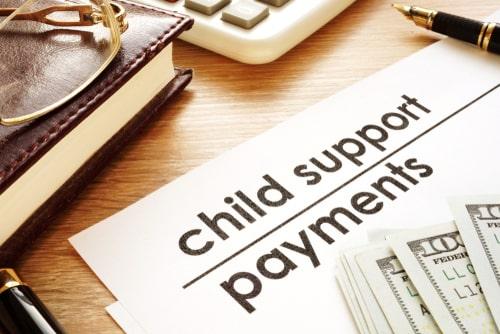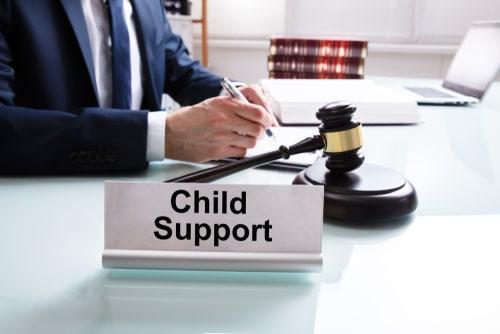Recent Blog Posts
As a Father in Illinois, Could My Parental Rights Be in Danger?
 People used to assume that when a couple got divorced, most parental responsibilities would be granted to the mother. While the law varies by state, that is no longer the assumption. Today, these arrangements are based on many factors. If you are a father who is concerned that your spouse could get all or most parental responsibilities in a divorce settlement, an experienced Kane County, IL divorce lawyer can explain the process to you.
People used to assume that when a couple got divorced, most parental responsibilities would be granted to the mother. While the law varies by state, that is no longer the assumption. Today, these arrangements are based on many factors. If you are a father who is concerned that your spouse could get all or most parental responsibilities in a divorce settlement, an experienced Kane County, IL divorce lawyer can explain the process to you.
Parental Distribution of Responsibilities Has Changed over Time
Not so long ago, American society held some generally accepted views on gender roles in parenting. Fathers were expected to be the main breadwinners, going off to work all day to earn the money that the family needed. They were not generally as involved as their wives in raising their children, because they were busy making a living. It was also assumed that mothers would handle the child-rearing and household responsibilities. They were not expected to contribute to the family budget because they were busy dealing with the family’s non-financial needs.
If I Cheated, Will That Make It Worse for My Illinois Divorce?
 Infidelity in marriage is becoming increasingly common. In some states across America, cheating could be enough for a court to grant the other spouse full custody and other beneficial terms in a divorce. In the State of Illinois, which is considered a "no-fault" state, neither spouse is considered responsible for a marriage breaking apart and both need to share parental responsibilities regardless of why they are splitting up.
Infidelity in marriage is becoming increasingly common. In some states across America, cheating could be enough for a court to grant the other spouse full custody and other beneficial terms in a divorce. In the State of Illinois, which is considered a "no-fault" state, neither spouse is considered responsible for a marriage breaking apart and both need to share parental responsibilities regardless of why they are splitting up.
You may have cheated on your spouse, but that has nothing to do with how you are as a parent. If you are a parent thinking about divorce in the State of Illinois and you had an affair, a DuPage County, IL divorce lawyer can help you understand the process and advocate on your behalf.
What Is a No-Fault Divorce State?
In the past, people needed to prove to the courts why they deserved to be granted a divorce. They needed to provide the court with their "grounds for divorce." Grounds generally included abuse, infidelity, or abandonment. But in 2016, the State of Illinois decided that from then on, couples no longer need to present the grounds for their divorce. Neither spouse needs to worry that their reputation will be ruined in divorce court.
I Am Thinking About Divorce but Want to Send My Child to College
 Often, when we think about parents going through a divorce, we imagine the couple trying to figure out how they will split custody, who will take the children to soccer practice or ballet class, and where the children will spend their holidays.
Often, when we think about parents going through a divorce, we imagine the couple trying to figure out how they will split custody, who will take the children to soccer practice or ballet class, and where the children will spend their holidays.
However, parents can decide to get a divorce at any stage in their life, and this can happen when a family has older children as well. A question that often comes up in Illinois divorce is how the child’s college education will be paid for if the parents are no longer acting as a unit. College expenses are constantly on the rise, which is why this can be a very important issue to work out during divorce proceedings. An experienced Kane County, IL divorce lawyer can help guide you through the process.
My Spouse and I Cannot Agree on Anything. How Will We Work Together to Pay For Our Child’s Degree?
Child support used to be a payment that divorced parents took into consideration until their children turned 18 years old. Nowadays, that is not always the case. Illinois judges have been increasingly requiring divorcing parents to form a plan for financing their children’s college education if they have the financial ability to do so.
Can I Decide Where to Get Divorced in Illinois?
 All divorces taking place in the State of Illinois need to meet the state’s residency requirements. That means that if you want to file for divorce, you need to have lived in Illinois for at least 90 days. The county where you file for divorce is the county in which your divorce will be handled, and the specific county where your case is handled is called the "venue."
All divorces taking place in the State of Illinois need to meet the state’s residency requirements. That means that if you want to file for divorce, you need to have lived in Illinois for at least 90 days. The county where you file for divorce is the county in which your divorce will be handled, and the specific county where your case is handled is called the "venue."
There are certain circumstances in which you may want to settle your divorce in a different county. If you feel that a change of venue would serve your interests, a DuPage County, IL divorce attorney will be able to clear up some confusion around the significance of where your divorce is handled, and guide you through the process of transferring it to a different county.
Does Venue Matter in an Illinois Divorce?
When someone files for divorce, their case will be handled in the county where they filed, which is generally where they or their spouse reside. Even if the spouses are living in separate counties at the time of filing, the divorce gets assigned to the county in which it was filed. All Illinois family courts follow the same state laws, but some counties may handle them slightly differently. The specific county where your divorce is finalized might affect the outcome.
I Just Got Laid Off. Can I Stop Paying Child Support?
 One thing that is certain in life is that nothing is certain. You can plan something based on how your life is now, and in five or ten years from now, you might find that your life is completely different. When you got married, you probably did not picture yourself one day getting a divorce. When you were in the middle of settling your divorce, you probably could not imagine how your life would look today.
One thing that is certain in life is that nothing is certain. You can plan something based on how your life is now, and in five or ten years from now, you might find that your life is completely different. When you got married, you probably did not picture yourself one day getting a divorce. When you were in the middle of settling your divorce, you probably could not imagine how your life would look today.
Your child support agreement was most likely made based on your income back then. This agreement may no longer suit you if you have recently been laid off from work. Fortunately, your monthly payments could be modified under certain circumstances like loss of a job. If you have lost your job and have questions about your child support payments, a Kane County, IL child support attorney may be able to clear up a lot of confusion.
Does the State of Illinois Allow Modifications to Child Support Payments?
According to Illinois State Law, modifications can be made to child support payments. The law lists certain circumstances under which the child support arrangement can be changed. One of the circumstances is if either parent’s income goes through some unexpected change, for example, if they have lost their job or gotten demoted.
Should I Change How I Act on Social Media During Divorce?
 Social media networks have become an important part of life. People use them to connect with friends, share personal milestones, network professionally, date, collaborate, and countless other reasons. But whatever you post online is out there for all the world to see. Your social media posts could impact your divorce. A DuPage County, IL attorney can explain how, and whether there is anything you should be doing differently.
Social media networks have become an important part of life. People use them to connect with friends, share personal milestones, network professionally, date, collaborate, and countless other reasons. But whatever you post online is out there for all the world to see. Your social media posts could impact your divorce. A DuPage County, IL attorney can explain how, and whether there is anything you should be doing differently.
How Can Social Media Usage Affect Divorce?
In a divorce proceeding, lawyers may try to get the settlement their clients want by trying to show the other spouse as unfit to care for their children or wealthy enough not to need alimony. Before social media was a popular tool, it was much harder to get evidence of such claims. Now that it is common to post pictures and comments on several social media platforms, people have access to so much personal information about others.
Should Stay-At-Home-Parents Be Nervous about Divorce in Illinois?
 When a married couple has children, they might find it difficult to juggle their work schedules and their household obligations. It can be tricky figuring out how to drop your children off at school, pick them up in the afternoon, and manage to get all your work done in between.
When a married couple has children, they might find it difficult to juggle their work schedules and their household obligations. It can be tricky figuring out how to drop your children off at school, pick them up in the afternoon, and manage to get all your work done in between.
Some spouses might decide that one of them will take on more of the family’s financial responsibilities, while the other will handle more of the family’s other needs. This means that one parent can commit themselves to working hard and moving up in their career, or getting professional or educational training, while the other parent will become a “stay-at-home” parent, making sure the household keeps running. When it comes to getting a divorce, this can create some trouble, but an Illinois family law attorney can help.
Why Would Someone Choose to Be a Stay-At-Home Parent?
When one person is in charge of the drop-offs, pick-ups, cooking, cleaning, laundry, grocery shopping, making sure kids get to all their appointments and after-school activities, and countless other household tasks, it can be so time-consuming that they simply cannot hold down a typical job. On the other hand, when all of those important tasks are taken care of by someone else, it is much easier for the working parent to focus on their job.
Modifying Child Custody in Illinois When a Parent Wants to Move
 Under Illinois divorce and family law statutes, when one parent seeks court approval to relocate a substantial distance away with a child after the divorce, the current custody order may need to be modified if the potential long-distance move could negatively impact your child’s interests.
Under Illinois divorce and family law statutes, when one parent seeks court approval to relocate a substantial distance away with a child after the divorce, the current custody order may need to be modified if the potential long-distance move could negatively impact your child’s interests.
Strict Formal Notification Requirements Apply
Illinois Compiled Statutes require the parent desiring to relocate provide formal advance written notice to the other parent of the intent to move with the child. This notice must be given at least 60 days prior to the anticipated relocation date. Serving advance notice gives the non-relocating parent time to file an objection and initiate child custody modification proceedings before the relocation occurs.
The Court Assesses Factors Related to the Child’s Best Interests
If the non-relocating parent formally objects to the proposed out-of-state move and files a petition to prevent it, the Illinois family law judge will carefully examine and weigh a variety of statutory factors to determine whether uprooting the child to a new distant location is truly in the overall best interests of the child. Factors examined include the likelihood of impacting the child’s emotional, physical, and mental well-being, the reasons for the relocation, logistics of transportation for parenting time, the child’s opinion, and disruption to current educational programs and community ties.
Is Your Ex Hiding Assets? Uncovering Hidden Income and Property in Illinois Divorce
 Unfortunately, it is not uncommon for some spouses to attempt to conceal or undervalue assets and income when divorcing in Illinois in hopes of avoiding their fair share of property division and support obligations. However, Illinois divorce law provides legal mechanisms to uncover hidden marital property and income sources.
Unfortunately, it is not uncommon for some spouses to attempt to conceal or undervalue assets and income when divorcing in Illinois in hopes of avoiding their fair share of property division and support obligations. However, Illinois divorce law provides legal mechanisms to uncover hidden marital property and income sources.
Require Complete Financial Disclosure Upfront
Illinois requires full written disclosure of all assets, debts, incoming revenue streams, and expenses by both spouses at the outset of divorce proceedings. Non-disclosure can result in severe penalties down the road, including overturning of the final property settlement. Insist on transparency from the very beginning.
Subpoena Bank Records and Financial Statements
If you have credible suspicion of undisclosed accounts, assets, or transactions, your divorce attorney can petition the court to subpoena bank statements, credit card records, loan documents, and other financial statements to ferret out hidden information that your spouse may have "forgotten" to mention. Thorough subpoena powers allow financial secrets to come to light.
Securing Fair Child Support When a Parent is Self-Employed in Illinois
 When a self-employed parent gets divorced in Illinois, determining accurate income for purposes of calculating child support can be challenging. However, state laws contain provisions to protect custodial parents and ensure child support orders are fair and representative of a self-employed parent’s true earnings.
When a self-employed parent gets divorced in Illinois, determining accurate income for purposes of calculating child support can be challenging. However, state laws contain provisions to protect custodial parents and ensure child support orders are fair and representative of a self-employed parent’s true earnings.
Courts Can Compel Tax Return Disclosure
Family law courts have the power to compel a self-employed parent to fully disclose recent years’ tax returns to paint an accurate picture of gross business income. Judges can also subpoena personal and business bank statements if questions or discrepancies arise regarding reported income and business revenues.
Watch for Hidden Income Through Business Expenses
One common tactic of self-employed parents is hiding additional income by paying for many personal expenses through their business. This may include reimbursed meals, travel, entertainment, cell phone costs, and more. Courts will often add back these types of personal expenses to the gross income calculation.












